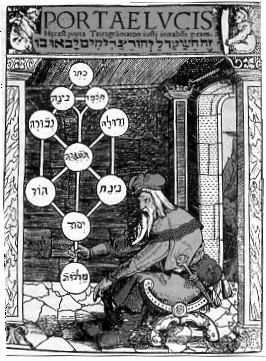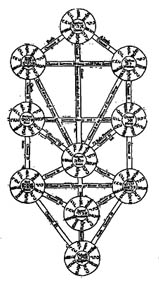Introduction
Many members of Christian cults claim that Jesus never said He was God. However, the biblical evidence shows that this concept is false. This page examines the claims of divinity that Jesus made about Himself. For other biblical passages that claim that Jesus is God, see Jesus Christ is God (YHVH).It is true that Jesus never said, "I am God" directly. However, most of His teachings were done through parables, and not by direct statements. His disciples asked Him why He taught this way. His answer was:
And He answered and said to them, "To you it has been granted to know the mysteries of the kingdom of heaven, but to them it has not been granted. For whoever has, to him shall more be given, and he shall have an abundance; but whoever does not have, even what he has shall be taken away from him. Therefore I speak to them in parables; because while seeing they do not see, and while hearing they do not hear, nor do they understand." (Matthew 13:11-13)Those who make the claim that Jesus never claimed to be God are blind and deaf to God's word, by their own choices.
Jesus claims to be the Son of Man
Although the title "Son of Man" may seem fairly innocuous, it is, in fact, a title of the Messiah, of whom the book of Daniel claims that all people will serve and that His kingdom would never end:"I kept looking in the night visions, And behold, with the clouds of heaven One like a Son of Man was coming, And He came up to the Ancient of Days And was presented before Him. "And to Him was given dominion, Glory and a kingdom, That all the peoples, nations, and men of every language Might serve Him. His dominion is an everlasting dominion Which will not pass away; And His kingdom is one Which will not be destroyed. (Daniel 7:13-14)Obviously, if the Son of Man were only human, He would not be able to establish an eternal kingdom. Likewise, He would not be able to convince all peoples to serve Him. Such abilities and honors are reserved for God alone.
Jesus claims to bethe Son of God
The Bible makes the direct claim that Jesus is the Son of God.1 Many others, including the disciples,2 a Roman Centurion,3 angels,4 demons5, John the Baptist,6 Martha,7 Saul (Paul),8 and the Ethiopian Eunich9make the same claim. Others said that Jesus Himself made the claim to be the Son of God.10 The gospels also indicate that Jesus Himself made the statement or acknowledged that He was the Son of God many times.11Virtually all cults will acknowledge that Jesus is the Son of God, as if the title confers no special meaning or only second class status. This assumption is unrealistic, since no other prophet ever called himself the Son of God. The Jewish leaders of the time knew exactly what this title implied - that Jesus was claiming to be God Himself:
For this cause therefore the Jews were seeking all the more to kill Him, because He not only was breaking the Sabbath, but also was calling God His own Father, making Himself equal with God. (John 5:18)Claiming to be the Son of God also conferred the title of Messiah or the anointed One. Psalm 2 talks about the Messiah (mashiach), whom it says is God's Son.12 This great messianic Psalm warns the reader to do homage to the Son and take refuge in Him,13 since He will rule the nations and judge the earth.14
Jesus claims to be the Messiah (the Christ)
The Bible says that Jesus is the Christ, or Messiah - the anointed One of God. Jesus Himself made the claim or acknowledged that He was the Messiah.15 The title is especially significant with regard to the question at hand - is Jesus God? The Old Testament tells us that the Messiah is God and the eternal Father:For a child will be born to us, a son will be given to us; And the government will rest on His shoulders; And His name will be called Wonderful Counselor, Mighty God, Eternal Father, Prince of Peace. (Isaiah 9:6)Other prophecies of the Old Testament tell us that the Messiah would be God:
"The days are coming," declares the LORD, "when I will raise up to David a righteous Branch, a King who will reign wisely and do what is just and right in the land. In his days Judah will be saved and Israel will live in safety. This is the name by which he will be called: The LORD Our Righteousness. (Jeremiah 23:5-6)The title, "The LORD Our Righteousness" indicates that the Messiah is God. The Hebrew word translated "LORD" is yhvh (Yahweh), which is the personal name of God.
Jesus claims to have the attributes of God
Jesus claimed to have many of the attributes that God alone possess. Jesus claimed to have sent the prophets:"Therefore, behold, I am sending you prophets and wise men and scribes; some of them you will kill and crucify, and some of them you will scourge in your synagogues, and persecute from city to city, (Matthew 23:34)However, the Old Testament indicates that God sent the prophets.16 Therefore, Jesus was claiming the authority that was previously reserved only for God.
Jesus claimed that His origins are from heaven, whereas men are from the world:
- "And no one has ascended into heaven, but He who descended from heaven, even the Son of Man. (John 3:13)
- And He was saying to them, "You are from below, I am from above; you are of this world, I am not of this world. (John 8:23)
- that you may eat and drink at My table in My kingdom, and you will sit on thrones judging the twelve tribes of Israel. (Luke 22:30)
- Jesus answered, "My kingdom is not of this world. If My kingdom were of this world, then My servants would be fighting, that I might not be delivered up to the Jews; but as it is, My kingdom is not of this realm." (John 18:36)
"I tell you the truth," Jesus answered, "before Abraham was born, I am!" At this, they picked up stones to stone him, but Jesus hid himself, slipping away from the temple grounds. (John 8:58-59)The claim included the term "I am" - a reference God made of Himself when talking to Moses.17The Jews immediately recognized that Jesus was claiming to be God and attempted to stone Him.
Jesus also claimed to have existed "before the world began":
"And now, Father, glorify me in your presence with the glory I had with you before the world began." (John 17:5)This statement is an obvious claim to deity. Not only did Jesus claim to exist before the creation of the universe, but He claimed to share the glory of God! Jesus also claimed that He had "all authority... in heaven and on earth" and that everything of God was His.18
And Jesus came up and spoke to them, saying, "All authority has been given to Me inheaven and on earth." (Matthew 28:18)Jesus claimed to be the supreme judge who will exercise all judgment.19 However, there are at least 50 verses in the Bible that claim that Jehovah God will judge the earth (see Who Will Judge Mankind?). Jesus claimed to be the one to separate the "sheep from the goats".20 However, the book of Ezekiel says that Jehovah God will do this.21 Jesus claimed to be the resurrection and the life.22 He said that He would personally raise everyone from the dead.23 These are all attributes of God.
Jesus claimed to be Lord of the Sabbath,24 although the Bible indicates that God held such title.25
Jesus claimed the ability to forgive sins.26 Even the Jews recognized that this was a function of God alone.27
Jesus claimed that He would return in the clouds in glory.28 Isaiah makes the same claim for Jehovah God.29 Obviously, Jesus was making a claim to deity.
Jesus claimed to be the light of the world who provides salvation.30 In the Psalms, David tells us that Jehovah God is our light and salvation.31 Jesus also claimed to be the way to life32 - an assertion that is made for God.33 Jesus said that He was the one who searched the hearts and minds,34 gives eternal life,35 and rewards those who follow Him.36 All of these characteristics are found only in God.37, 38, 39
Jesus said He was the good shepherd,40 who searches for His sheep.41 These are claims made of God in the Old Testament.42, 43 Jesus claimed to be the fountain of living water.44 This is a clear reference to what God said of Himself as recorded by the prophet Jeremiah.45 Jesus said He would give rest to those who found Him.46 The same claim is made of God in the book of Exodus.47
Jesus claimed to send the Holy Spirit (Helper).48 The same claim is made for God.49 Jesus said that He raised Himself from the dead,50 even though the Bible says that God did it.51 Among Jesus' parting words, He told His disciples to baptize new followers in "the name of the Father and the Son and the Holy Spirit."
"Go therefore and make disciples of all the nations, baptizing them in the name of the Father and the Son and the Holy Spirit, teaching them to observe all that I commanded you; and lo, I am with you always, even to the end of the age." (Matthew 28:19-20)It should be noted that the other two names (Father and Holy Spirit) are names for God. In fact, the text says specifically that they should be baptized in the name (singular), not names, of the three persons mentioned. In order to be one name, they must all represent God. Jesus claimed that His disciples would be unable to do anything of significance without His power. Such a statement is a clear claim of divine power.
"I am the vine, you are the branches; he who abides in Me, and I in him, he bears much fruit; for apart from Me you can do nothing. (John 15:5)
Jesus accepts the title of God
One of the least favorite exchanges in the Bible from the cults perspective is the one that occurred between Jesus and Thomas after Jesus rose from the dead. Thomas, the ever-skeptical disciple, was unconvinced that Jesus had risen from the dead and wanted to see direct proof. However, when the Lord Jesus appeared to him, his only reaction was "My Lord and my God!"Thomas answered and said to Him, "My Lord and my God!" Jesus said to him, "Because you have seen Me, have you believed? Blessed are they who did not see, and yet believed." (John 20:28-29)What was Jesus' reaction to the title of God? Did Jesus rebuke him for calling Him "God"? No! In fact, Jesus praised Thomas for his belief. And the belief that Thomas exhibited was that Jesus was Lord and God. If Jesus were not God, accepting such a statement for truth would be a grievous sin. Either Jesus is God or He would have to be a sinner!
Jesus claims to be God
The cults tend to acknowledge that Jesus and God were "one in purpose." However, this is a rather weak claim. Every disciple of Jesus Christ has the goal of being "one in purpose" with God the Father. Even so, Jesus never used the word "purpose" in His claims of oneness with God."I and the Father are one." The Jews took up stones again to stone Him. Jesus answered them, "I showed you many good works from the Father; for which of them are you stoning Me?" The Jews answered Him, "For a good work we do not stone You, but for blasphemy; and because You, being a man, make Yourself out to be God." (John 10:30-33)Obviously, the Jews did not think that this claim of being one with the Father referred to purpose. They knew that He was claiming equality with God, which is why they tried to stone Him. In addition, Jesus said outright that He was Lord52 and claimed to be the first and the last,53 an obvious trait reserved for God.54

 Translate
Translate

 Imagine you're Madonna. You're too smart for Scientology, but not calm enough for Taoism. You've pretty much burned your bridges with Catholicism. And Methodism was never really an option. So where do you go for your religious fulfillment?
Imagine you're Madonna. You're too smart for Scientology, but not calm enough for Taoism. You've pretty much burned your bridges with Catholicism. And Methodism was never really an option. So where do you go for your religious fulfillment? The Zohar was first seen in public during the 13th century, offered up by Moses de Leon, a Spanish Jew who claimed it was the work of a second-century miracle-working rabbi. After de Leon's death, there were numerous charges that the work was a forgery. There is quite a bit of legitimate controversy around the book, but the scholarly consensus is that the Zoharlegitimately conveys a tradition that predates the 13th century, including several elements found in Jewish and Christian Gnosticism.
The Zohar was first seen in public during the 13th century, offered up by Moses de Leon, a Spanish Jew who claimed it was the work of a second-century miracle-working rabbi. After de Leon's death, there were numerous charges that the work was a forgery. There is quite a bit of legitimate controversy around the book, but the scholarly consensus is that the Zoharlegitimately conveys a tradition that predates the 13th century, including several elements found in Jewish and Christian Gnosticism. The most readily identifiable concept in Kabbalism is the Tree of Life, a diagram that is essentially a map of reality. The Tree of Life consists of three columns known as "pillars", and 10 sephiroth, or spheres, each of which represents an aspect of the process God used to create the world.
The most readily identifiable concept in Kabbalism is the Tree of Life, a diagram that is essentially a map of reality. The Tree of Life consists of three columns known as "pillars", and 10 sephiroth, or spheres, each of which represents an aspect of the process God used to create the world. The Torah provides one version of this name, of course, which practicing Jews are forbidden to speak -- YHWH, pronounced as Yahweh (or JHVH, Jehovah) by those who are not especially worried about eternal damnation and a divine curse. YHWH is derived from the first letter of each Hebrew word God spoke to Moses from the burning bush story found in Exodus. The rough English translation of the statement is "I am who am", "I am who I am", or "I am that I am."
The Torah provides one version of this name, of course, which practicing Jews are forbidden to speak -- YHWH, pronounced as Yahweh (or JHVH, Jehovah) by those who are not especially worried about eternal damnation and a divine curse. YHWH is derived from the first letter of each Hebrew word God spoke to Moses from the burning bush story found in Exodus. The rough English translation of the statement is "I am who am", "I am who I am", or "I am that I am." To a greater or lesser extent, Kabbalism is the basis of nearly every tradition covered under the general heading of "occultism". Kabbalah is the basis for the rumored occult practices of the Freemasons, the Illuminati and the Knights Templar, the stylings of the O.T.O., the antichrist rituals of Jack Parsons, and the creation of mystical beings such as the Golem. Scientology is also roughly modeled on the Kabbalah, albeit filtered through a Battlestar Galacticasensibility.
To a greater or lesser extent, Kabbalism is the basis of nearly every tradition covered under the general heading of "occultism". Kabbalah is the basis for the rumored occult practices of the Freemasons, the Illuminati and the Knights Templar, the stylings of the O.T.O., the antichrist rituals of Jack Parsons, and the creation of mystical beings such as the Golem. Scientology is also roughly modeled on the Kabbalah, albeit filtered through a Battlestar Galacticasensibility.